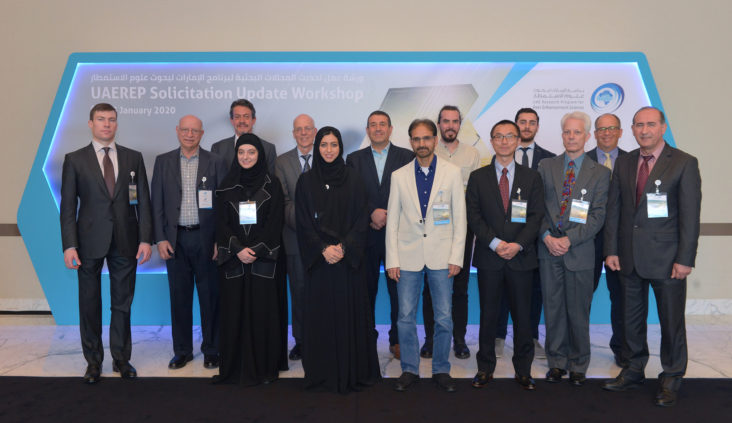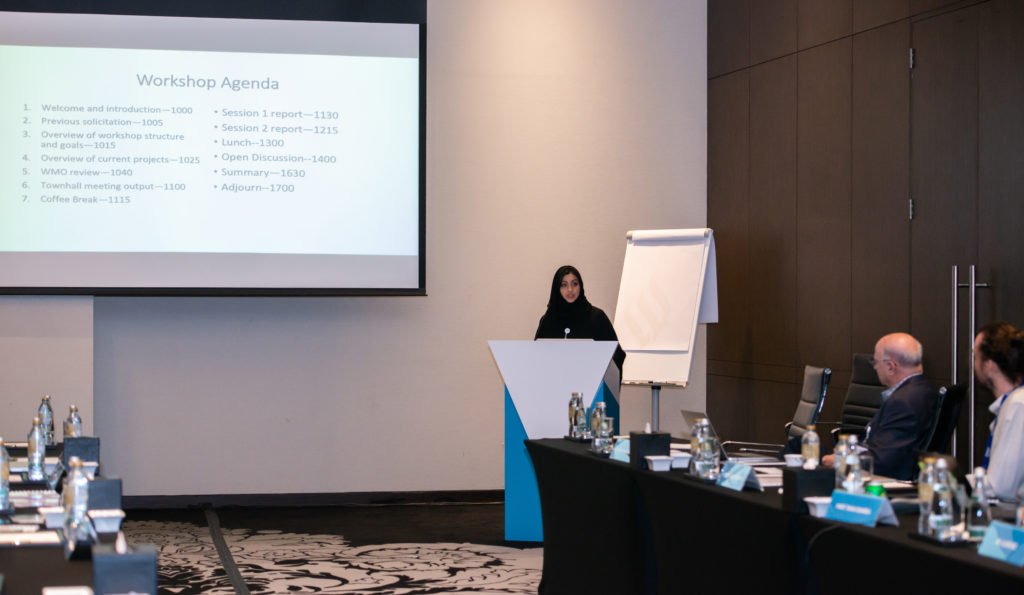UAE Research Program For Rain Enhancement Science Hosts Solicitation Update Workshop To Shape Future Direction Of Research Objectives

The UAE Research Program for Rain Enhancement Science (UAEREP) hosted a workshop to update its solicitation document, which will define the future calls for research proposal submissions. The workshop built on the productive discussions that took place during the 4th International Rain Enhancement Forum (IREF) and its various plenary sessions.
The full-day event brought together leading scientists and experts in atmospheric research and technologies, and centered around two main themes: ‘Cloud to Ground Science: Identifying Knowledge Gaps’ and ‘New Approaches and Technologies for Rain Enhancement’.
The session was opened with the welcome speech by Alya Al Mazroui, Director of the UAE Research Program for Rain Enhancement Science (UAEREP), who outlined the UAEREP’s purpose and ambitions.
Alya Al Mazroui said: “This workshop follows the successful fourth edition of the International Rain Enhancement Forum and the productive discussions we had over the course of the three days of intensive sessions and the Town Hall Meeting. The workshop is crucially important for our call for new research proposals and the shaping of the future direction of UAEREP’s research objectives.”
She added: “As we move forward with our efforts to enhance collaboration and seek viable solutions for global water stress, it is essential to build stakeholder consensus around our research goals and priorities to ensure the relevance and quality of proposals for the future of the our research program.”
Al Mazroui also revealed that the content of the new solicitation document will be shared publicly in mid-2020 as part of the call for research proposal submissions for the Program’s 4th cycle starting in 2021.
Participants at the workshop were provided with a detailed overview of UAEREP’s previous solicitation and management plan and the workshop structure by Dr. Richard Behnke, chair of UAEREP’s international reviewers committee.
In his presentation, Dr. Deon Terblanche, Weather and Climate Consultant at World Bank and former Director of Research at the World Meteorological Organization (WMO), highlighted the achievements and challenges of past UAEREP awardees, and the latest advances in precipitation enhancement research.
Dr. Deon Terblanche also chaired a session titled ‘Cloud to Ground Science: Identifying Knowledge Gaps’, covering key topics such as quantifying the evaporative loss between cloud-base and the surface, improving areal precipitation estimation through a combination of remote sense and ground-based measurements, and translating seeding effects on single storms into areal effects. Panelists also discussed inter-cloud interactions in a convective environment, rainfall-runoff-groundwater relationship and the impact of cloud seeding and environmental and ecological changes due to long-term cloud seeding.
The workshop also facilitated productive discussions around ‘New Approaches and Technologies for Rain Enhancement’. Chaired by Dr. Steve Griffiths, Senior Vice President for Research and Development at Khalifa University, the session provided an insight into the technologies for observing physical phenomena, data modeling, analysis, and evaluation and experimental design, technologies, and instrumentation.
In the summary of workshop outputs, Dr. Robert Robinson, co-chair of the committee, outlined the key takeaways and observations from the workshop participants.
UAEREP organized the 4th International Rain Enhancement Forum (IREF) from 19 to 21 January, 2020 under the supervision of the National Center of Meteorology (NCM). The event convened prominent national and international experts, researchers, scientists, and stakeholders to highlight the latest scientific and technological advancements in rain enhancement.
The outcomes of the IREF town hall meeting, which took place on 21 January under the theme of “Determining Future Directions for Rain Enhancement Research”, provided important input for the discussions during the workshop, and for the shaping of the new UAEREP solicitation and the research proposal calls.




